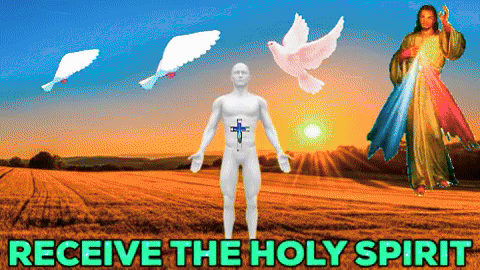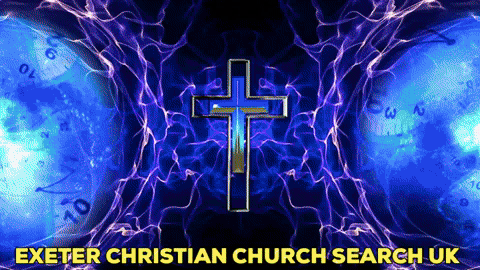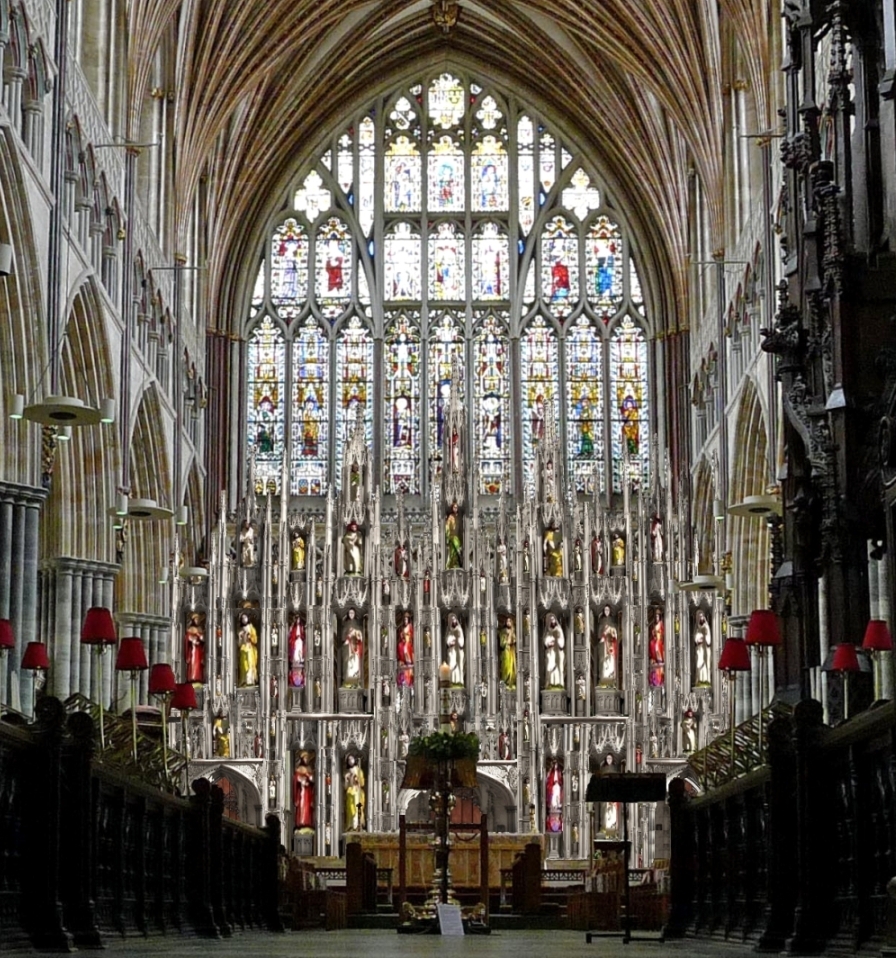
Total Surrender To God
The idea of surrendering to God and allowing God to be everything reflects a deep longing for union with the divine and a recognition of the ultimate reality beyond the limited confines of the ego. It is a path of love, devotion, and self-transcendence that leads to profound spiritual transformation and realisation.
In spite of God’s altruistic aims on our behalf, perhaps no doctrine, no teaching, no philosophy has stirred such controversy as has this: that man may be one with god.
It is espoused by some as blasphemous, by others as absurd. Such a concept, they challenge, lowers God to the status of man and thus deprives God of both His dignity and divinity.
But, this concept is deeply rooted in various religious and spiritual traditions, particularly in branches of Christianity and other faiths. This often revolves around the notion of surrendering oneself completely to the divine, transcending the ego, and merging with the ultimate reality or God.
Others claim this teaching to be devoid of scriptural support. It is but a fantasy, they say. Certainly no God-fearing, right-thinking, Bible-oriented person would subscribe to such a philosophy as this.
While some of these advocates are hardened critics, others are honest and bright men who simply disagree with us on this doctrine.
So wherein lies the truth?
Hopefully the following will invite the Holy Ghost to whisper the quiet but certain truth to all those who honestly seek it.
For our search of truth, we will turn to five witnesses—first and foremost to the testimony of the scriptures; second, to the witness of the early Christian writers; third, to the wisdom of those poets and authors who drink from the divine well; fourth, to the power of logic; and fifth, to the voice of history.
Please read down this post and take in all the points mentioned.
There is a sentiment among many in the world that we are the spirit creations of God, just as a building is the creation of its architect or a painting the creation of its painter or an invention the creation of its inventor.
The scriptures teach, however, a much different doctrine. They teach that we are more than creations of God; they teach that we are the literal spirit offspring or children of God our Father.
What difference does this doctrinal distinction make? The difference is monumental in its consequence because our identity determines in large measure our destiny. For example, can a mere creation ever become like its creator? Can a building ever become an architect? A painting a painter? Or an invention an inventor?
If not, then those who believe we are creations of God, rather than His spirit offspring, reach the inevitable conclusion that we do not have the capacity to become like our creator, God. In essence, their doctrine of identity has defined and dictated a diminished destiny.
On the other hand, others believe that we are the spirit offspring of God with inherited spiritual traits that give us the divine potential to become like our parent, God the Father. As to this identity.
You are a child of God. He is the father of your spirit. Spiritually you are of noble birth, the offspring of the King of Heaven. Fix that truth in your mind and hold to it. However many generations in your mortal ancestry, no matter what race or people you represent, the pedigree of your spirit can be written on a single line. You are a child of God.
It is this doctrine of identity that defines our potential destiny of godhood. If one does not correctly understand his divine identity, then he will never correctly understand his divine destiny. They are, in truth, inseparable partners.
What, then, has God revealed to us about our destiny? He has spoken clearly and frequently and forthrightly on this subject from the very beginning. When Adam and Eve were in the Garden of Eden, they lived in a state of innocence—meaning they only had a limited knowledge of good and evil.
Lehi described their condition as follows: “Wherefore they would have remained in a state of innocence, having no joy, for they knew no misery; doing no good, for they knew no sin” (2 Nephi 2:23).
When Adam and Eve were cast out of the Garden of Eden, they traded their innocence, meaning a lack of knowledge of good and evil, for the prospect of perfection—that was the deal. Innocence and perfection are not the same.
An infant may be innocent but certainly not perfect in the sense that he or she has acquired all the attributes of godliness.
Once Adam and Eve were cast from the garden, we read in the book of Genesis that God Himself said, “Behold, the man is become as one of us [meaning like the gods]” (Genesis 3:22; emphasis added). How could that be?
God then tells us why this new destiny was possible—because men now “know good and evil.” Being immersed in a world of good and evil, having the capacity to choose, and being able to draw upon the powers of the Atonement resulted in man having unlimited opportunities to progress toward his destiny of godhood.
We learn a great doctrinal truth in these series of events surrounding the Garden of Eden: unfallen man would have remained in a state of innocence—safe, but restricted in his progress.
On the other hand, fallen man ventured into a heightened arena of risk, but, blessed with the Atonement of Jesus Christ, he gained access to unlimited possibilities and powers and potential. Speaking of the effect of the Atonement on fallen man, C. S. Lewis remarked:
For God is not merely mending, not simply restoring a status quo. Redeemed humanity is to be something more glorious than unfallen humanity would have been, more glorious than any unfallen race now is. . . . And this super-added glory will, with true vicariousness, exalt all creatures.3
Through the Atonement of Jesus Christ, God can exalt all His children—meaning empower them to become like Him.
But one might ask, “Why does God want us to become like Him?” In order to answer that question, one must first understand why man exists. Lehi gave the short and simple answer: “Men are, that they might have joy” (2 Nephi 2:25). President David O. McKay confirmed that fundamental doctrinal truth: “Happiness is the purpose and design of existence.
If I were to ask you who is the happiest being in all the universe—the one with the most joy—you would no doubt respond, “God.” Accordingly, God wants us to become perfect like Him so we can experience His quality of joy and thus best fulfill the measure of our existence. That is why His plan for us is sometimes called “the plan of happiness” (see Alma 42:8, 16).
Further Points To Consider
Scriptures
First, the scriptures. Did not an angel appear unto Abraham and extend to him this heavenly mandate: “Walk before me, and be thou perfect” (Genesis 17:1)?
“That is true,” interjects the critic. “Perfect as compared to other men, other mortals—certainly not perfect as compared to God. The word was used in its relative, not absolute sense.”
“Is that so?” comes the reply. “Let us then pursue the use of the word perfect as used by the Savior Himself.”
It was in the Sermon on the Mount when the Savior declared, “Be ye therefore perfect, even as your Father which is in heaven is perfect” (Matthew 5:48; emphasis added).
Was the Savior inviting men to be perfect as compared to other men—other mortals—or as compared to God Himself? This command was consistent with the Savior’s high priestly prayer. Speaking of the believers, He petitioned the Father:
That they may be one, even as we are one:
I in them, and thou in me, that they may be made perfect in one.[John 17:22–23]
In accord with that request for perfection, Paul taught that a critical purpose of the Church was “for the perfecting of the saints . . . till we all come . . . unto a perfect man, unto the measure of the stature of the fulness of Christ” (Ephesians 4:12–13; emphasis added).
Note the measuring rod: not man, not some form of mini-Christ or quasi-God, but rather that we should become “a perfect man, [and then he gives us the standard we should strive for] unto the measure of the stature of the fulness of Christ.” Does that sound relative to you?
The critic is momentarily quiet. Sheepishly he responds, “Certainly those scriptures must mean something else.”
The scriptures supporting this doctrine, however, continue to roll forth with repeated and powerful testimony. At one point the Savior was about to be stoned by the Jews for blasphemy. He reminded them of His good works and then asked, “For which of those works do ye stone me?”
They replied that they were not stoning him for good works “but for blasphemy; and because that thou, being a man, makest thyself God.”
To this He readily acknowledged that He was and declared that they should be likewise: “Is it not written in your law, I said, Ye are gods?” (John 10:32–34; emphasis added). In other words, He said not only am I a god, but all of you are potential gods.
He was referring to His own Old Testament declaration, with which the Jews should have been familiar: “Ye are gods; and all of you are children of the most High” (Psalm 82:6). The Savior was merely reaffirming a basic gospel teaching that all men are children of God, and thus all might become like Him.
Paul understood this principle, for, when speaking to the men of Athens, he said: “Certain also of your own poets have said, For we are also his offspring” (Acts 17:28). Paul knew the consequences of being the offspring of God, for, while speaking to the Romans, he declared:
The Spirit itself beareth witness with our spirit, that we are the children of God:
And if children, then heirs; heirs of God, and joint-heirs with Christ. [Romans 8:16–17; emphasis added; see also 1 Corinthians 3:21–23 and Revelation 21:7]
Not subordinate heirs, not junior, not contingent, but joint, equal heirs with Christ Himself, to share in all that He shall share. After all, is not that the same promise made by the Lord to the Apostle John? “To him that overcometh will I grant to sit with me in my throne, even as I also overcame, and am set down with my Father in his throne” (Revelation 3:21).
Is it any wonder that Paul should write to the Saints of Philippi, “I press toward the mark for the prize of the high calling of God in Christ Jesus” (Philippians 3:14). Paul, who understood so very well our destiny, was striving for the reward of godhood. Peter, who also understood this doctrine, pled with the Saints that they might become “partakers of the divine nature” (2 Peter 1:4), meaning recipients of godhood.
That is exactly what Jesus ordered when speaking to the Book of Mormon Saints: “Therefore, what manner of men ought ye to be? Verily I say unto you, even as I am” (3 Nephi 27:27; see also 1 John 3:2). And it is exactly what the Savior promised in this dispensation for all faithful Saints: “Then shall they be gods, because they have all power, and the angels are subject unto them” (D&C 132:20; see also verse 19; see also D&C 76:58–60).
The critic, still shaking his head, responds, “But such a concept lowers God to the status of man and thus robs Him of His divinity.”
“Or, to the contrary,” comes the reply, “does it elevate man in his divine-like potential?”
Paul well knew this argument of the critic and silenced it once and for all ages ago. Speaking to the Saints of Philippi, he said:
Let this mind be in you, which was also in Christ Jesus:
Who, being in the form of God, thought it not robbery to be equal with God. [Philippians 2:5–6; emphasis added]
The Savior knew that for Him to be a god and for us to be thus minded would not rob God of His divinity. That makes good sense. After all, who is greater: that being who limits or that being who enhances man’s eternal progress?
One might ask, Who can give greater honor and glory to God—a creature of lower or more exalted status? Can an animal offer the same honor or worship with the same passion and intensity as a human?
Can a mere mortal express the empyreal feelings or exercise the spiritual fervency of a potential god? One’s capacity to honour and worship is magnified with one’s intellectual, emotional, cultural, and spiritual enlightenment.
Accordingly, the more we become like God, the greater our ability to pay Him homage. In that process of lifting men heavenward, God simultaneously multiplies His own honor and glory and thus is glorified more, not less.
Brigham Young addressed this issue:
[Man’s godhood] will not detract anything from the glory and might of our heavenly Father, for he will still remain our Father, and we shall still be subject to him, and as we progress, in glory and power it the more enhances the glory and power of our heavenly Father.
That is the irony of the critic’s argument—godhood for man does not diminish God’s status; to the contrary, it elevates it by producing more intelligent, more passionate, more spiritual Saints who have enlarged capacities to understand, honor, and worship Him.
The Savior’s soul-stirring and thought-provoking injunction to “be ye therefore perfect” was more than the sounding of brass or tinkling of cymbals (see 1 Corinthians 13:1). It was a divine-like invitation to rise up to our full potential and become like God our Father. C. S. Lewis, as a rampant advocate of this simple but glorious truth, wrote:
The command Be ye perfect is not idealistic gas. Nor is it a command to do the impossible. He is going to make us into creatures that can obey that command. He said (in the Bible) that we were “gods” and He is going to make good His words. . . . The process will be long and in parts very painful; but that is what we are in for. Nothing less. He meant what He said.8
Could it be any clearer?
Early Christian Writers
Second, early Christian writers likewise wrote of our divine destiny.9 As early as the second century, Irenaeus (A.D. 115–202) noted: “We have not been made gods from the beginning, but at first merely men, then at length gods.”10 On another occasion Irenaeus clarified that exalted man would not be relegated to some type of glorified angel but literally become a god: “Passing beyond the angels, and be made after the image and likeness of God.”11
Clement of Alexandria (A.D. 160–200), a contemporary of Irenaeus, spoke of the reward of godhood that followed long preparation: “Being destined to sit on thrones with the other gods that have been first put in their places by the Saviour.”12 This same Clement of Alexandria then added this unequivocal statement about the man who lives a righteous life: “Knowing God, he will be made like God. . . . And that man becomes God, since God so wills.”13
Hippolytus (A.D. 170–236), bridging the second and third centuries, spoke of the unlimited potential of faithful Saints in this life: “And thou shalt be a companion of the Deity, and a co-heir with Christ. . . . For thou hast become God: . . . thou hast been deified,and begotten unto immortality.”14
Cyprian (A.D. 200–258), a well-known Christian leader of the third century, reaffirmed that men can become like Christ: “What Christ is, we Christians shall be, if we imitate Christ.”15
Origen (A.D. 185–255), also of the third century, wrote: “The true God [referring to the Father], then, is ‘The God,’ and those who are formed after Him are gods, images, as it were, of Him the prototype.”16
And in the fourth century St. Athanasius of Alexandria (A.D. 295–373) explained that “[God] was made flesh in order that we might be enabled to be made gods.”17
For several centuries this doctrinal truth survived, but eventually the Apostasy took its toll, and this doctrine in its purity and expansiveness was lost. The doctrine of man’s potential for godhood as taught by the Prophet Joseph Smith was not his invention—not his creation, not conjured up by some fertile mind. It was simply and solely a restoration of a glorious truth that had been taught in the scriptures and by many early Christian writers of the primitive Church.
Poets and Authors
The third witness—inspired poets and authors. We may look to the wisdom of selected poets and authors who are men of integrity and spiritual insight. It was C. S. Lewis who again and again reaffirmed this divine proposition:
It is a serious thing to live in a society of possible gods and goddesses, to remember that the dullest and most uninteresting person you talk to may one day be a creature which . . . you would be strongly tempted to worship. . . . There are no ordinary people.18
How right he was. There are no ordinary people, only potential gods and goddesses in our midst.
It was Victor Hugo, that masterful author, who said, “The thirst for the infinite proves infinity.” What a powerful and sublime thought. Perhaps the thirst for godhood likewise proves godhood. Would the God you and I know plant the vision and desire for godhood within a man’s soul and then frustrate him in his ability to attain it? Shakespeare had a flash of this insight, for, when speaking through the lips of Hamlet, he said:
What a piece of work is a man! How noble in reason! how infinite in faculty! in form, in moving, how express and admirable! in action how like an angel! in apprehension how like a god!20
Robert Browning’s vision that so often pierced the mortal veil did so once again in these lines from his poem Rabbi Ben Ezra:
Life’s struggle having so far reached its term.
Thence shall I pass, approved
A man, for aye removed from the developed brute—a god, though in the germ.
This insightful poet saw the seeds and germ of godhood in every man.
Logic
The fourth witness is the power of logic. Do not the laws of science teach us that like begets like, each after its kind? Science has taught us that a complex genetic code transferred from parent to child is responsible for the child attaining the physical attributes of his parents.
If this be so, is it illogical to assume that spirit offspring receive a spiritual code giving to them the divine characteristics and potential of their parent—God—thus making them gods in embryo? No, it is but a fulfilment of the law that like begets like. This is the same truth taught by the prophet Lorenzo Snow:
We were born in the image of God our Father; He begat us like unto Himself. There is the nature of Deity in the composition of our spiritual organisation. In our spiritual birth, our Father transmitted to us the capabilities, powers and faculties which He possessed, as much so as the child on its mother’s bosom possesses, although in an undeveloped state, the faculties, powers and susceptibilities of its parent.
President Boyd K. Packer told of coming home one day and helping his children gather new chicks in the barn. As his little four-year-old daughter held a baby chick in her hands, he said something like, “Won’t that be a beautiful dog when it grows up?”
His daughter looked at him in surprise.
And then he said something like, “Or perhaps it will be a cat or even a cow.”
His little daughter wrinkled her nose, as if to say, “Daddy, don’t you know anything? It will grow up exactly like its parents.”
Then he observed how this little four-year-old girl knew, almost instinctively, that the chick would grow up to follow the pattern of its parentage.
The Gospel of Philip, an apocryphal book, makes this simple statement of logic: “A horse sires a horse, a man begets man, a god brings forth a god.” The difference between man and God is significant—but it is one of degree, not kind. It is the difference between an acorn and an oak tree, a rosebud and a rose, a son and a father. In truth, every man is a potential god in embryo, in fulfilment of that eternal law that like begets like.
Voice of History
Fifth, and finally, the voice of history will likewise verify this truth. I recall the story of the large milk truck that drove past the pasture of cows. Written on the side of the vehicle in large letters were the words “Homogenized, Pasteurized, Vitamins A and D Added.”
One cow looked at the sign, turned to the other, and said, “Makes you feel kind of inadequate, doesn’t it?”
I admit that is how I feel when I look at the distance between God and me, but I take comfort when I contemplate what is accomplished in the short space of a mortal life. I paraphrase these thoughts of B. H. Roberts: From the cradle have risen orators, generals, artists, and workers to perform the wonders of our age.
From a helpless babe may arise a Demosthenes or Lincoln to direct the destinies of nations. From such a babe may come a Michelangelo to fill the world with beauty. From such a beginning may come a Mozart, a Beethoven to call from silence the powers and serenity of music. From such a helpless babe may arise a Joseph Smith to give light in a world of darkness.
Contemplate for a moment what can be accomplished in the short space of a mortal life. Suppose now that you were to remove from man the barriers of death and grant him immortality and God for his guide. What limits would you then want to ascribe to his mental, moral, or spiritual achievements?
Perhaps B. H. Roberts expressed it best when he said:
If within the short space of mortal life there are men who rise up out of infancy and become masters of the elements of fire and water and earth and air, so that they well-nigh rule them as Gods, what may it not be possible for them to do in a few hundreds or thousands of millions of years?26
A glimpse beyond the veil tells us that the records of history do not end at death but continue to mark man’s unlimited achievements. Victor Hugo, with an almost spiritual X-ray, saw the possibilities after death:
The nearer I approach the end, the plainer I hear around me the immortal symphonies of the worlds which invite me. . . . For half a century I have been writing my thoughts in prose and verse; history. I have tried all. But I feel I have not said a thousandth part of what is in me. When I go down to the grave, I can say, like so many others, “I have finished my day’s work,” but I can not say, “I have finished my life.” My day’s work will begin again the next morning. The tomb is not a blind alley; it is a thoroughfare. . . . My work is only beginning.
Perfection is a quest on both sides of the veil. The scriptures remind us, “Wherefore, continue in patience until ye are perfected” (D&C 67:13).
The Divine Possibility Becomes a Divine Reality
The scriptures, early Christian writers, poetry, logic, and history testify not only of the divine possibility but of the divine reality that man may become as God. The Doctrine and Covenants refers to Abraham, Isaac, and Jacob, declaring, “And because they did none other things than that which they were commanded, they have entered into their exaltation, . . . and sit upon thrones, and are not angels but are gods” (D&C 132:37).
For these men the divine possibility became the divine reality. This does not mean they became gods who replaced our Father in Heaven but rather exalted men who have enlarged capabilities to honour and glorify Him. Our Father in Heaven will forever stand supreme as our God, whom we will love and revere and worship, worlds without end.
But how is it possible that you and I, with all our faults and weaknesses and shortcomings, could ever become a god? Fortunately, a loving Heavenly Father has given us resources to lift us above our mortal restraints and propel us to divine heights.
We mention but two such resources, both made possible because of the Atonement of Jesus Christ, whose crowning aim is to assist us in our pursuit of godhood—so that we might be “at one”—not only with Him but also “at one” like Him. First, we mention the saving ordinances of the kingdom.
Joseph Smith received a revelation that explained the relationship between ordinances and godhood:
Therefore, in the ordinances thereof, the power of godliness is manifest.
And without the ordinances thereof, and the authority of the priesthood, the power of godliness is not manifest unto men in the flesh. [D&C 84:20–21]
In other words, participation in the saving ordinances unlocks and unleashes certain powers of godliness in our lives that are not available in any other way. These powers help refine us and perfect us. The five saving ordinances and the corresponding powers of godliness are as follows:
First, baptism by immersion (and the corollary ordinance of the sacrament). Because of the Atonement of Jesus Christ, this ordinance cleanses us from our sins and helps make us holy, thus aligning our life more closely with the Savior’s.
Second, the gift of the Holy Ghost. This gift helps us know “the will of the Lord [and] the mind of the Lord” (D&C 68:4) and thus makes possible our acquisition of a more godlike mind.
Third, the priesthood. This ordinance transfers to a mere mortal the power to act for God on earth as though He Himself were present. In essence, it is a spiritual power of attorney to be God’s agent and to invoke His power, thus helping us learn how to exercise divine powers in righteousness.
Fourth, the endowment. This ordinance is a gift of knowledge from God as to how we might become more like Him, accompanied by covenants to inspire us in that endeavor. There is an old saying, “Knowledge is power.” Accordingly, the righteous use of this knowledge received in the endowment ordinance results in more godly power in our own lives. That is why the Doctrine and Covenants says, “I design to endow those whom I have chosen with power from on high” (D&C 95:8).
Fifth, the sealing ordinances. Death, with all its mighty power, cannot destroy those relationships sealed in a temple—which relationships can now continue beyond the grave and allow us, like God, to have eternal increase.
The saving ordinances are much more than a checklist of actions we must satisfy to gain entrance to the celestial kingdom—they are the keys that open the doors to heavenly powers that can lift us above our mortal limitations.
The second resource to assist us in our pursuit of godhood is the gifts of the Spirit. What are the gifts of the Spirit? We know them as love, patience, knowledge, testimony, and so on. In essence, each gift of the Spirit represents an attribute of godliness. Accordingly, each time we acquire a gift of the Spirit, we acquire a potential attribute of godliness.
In this regard Orson Pratt taught:
One object [of the Church] is declared to be “For the perfecting of the Saints.” . . . The . . . plan . . . for the accomplishment of this great object, is through the medium of the spiritual gifts. When the supernatural gifts of the Spirit cease, the Saints cease to be perfected, therefore they can have no hopes of obtaining a perfect salvation. . . .
. . . In every nation and age, where believers exist, there the gifts must exist to perfect them.29
No wonder the Lord commands us to “covet earnestly the best gifts” (1 Corinthians 12:31); “seek ye earnestly the best gifts” (D&C 46:8); and to “lay hold upon every good gift” (Moroni 10:30).
George Q. Cannon spoke of man’s shortcomings and the divine solution. Recognising the link between spiritual gifts and godhood, he fervently pleaded with the Saints to overcome each manifested weakness through the acquisition of a countermanding gift of strength known as the gift of the Spirit. He spoke as follows:
If any of us are imperfect, it is our duty to pray for the gift that will make us perfect. . . . No man ought to say, “Oh, I cannot help this; it is my nature.” He is not justified in it, for the reason that God has promised to give strength to correct these things, and to give gifts that will eradicate them. . . . He wants His Saints to be perfected in the truth. For this purpose He gives these gifts, and bestows them upon those who seek after them, in order that they may be a perfect people upon the face of the earth, notwithstanding their many weaknesses, because God has promised to give the gifts that are necessary for their perfection.
What was the Lord’s response to Solomon’s prayerful request for the gift of an understanding heart? The scriptures record, “The speech pleased the Lord, that Solomon had asked this thing,” and then the Lord noted, “Behold, I have done according to thy words: lo, I have given thee a wise and an understanding heart” (1 Kings 3:10, 12).
When was the last time we prayed for a gift of the Spirit that would lift us above our mortal weakness and further our pursuit of godhood? Again and again the Lord has both invited and promised, “Ask, and it shall be given you” (Matthew 7:7).
Why is it so critical to have a correct vision of this divine destiny of godliness of which the scriptures and other witnesses so clearly testify? Because with increased vision comes increased motivation. Elder Bruce R. McConkie wrote, “No doctrine is more basic, no doctrine embraces a greater incentive to personal righteousness . . . as does the wondrous concept that man can be as his Maker.” And why not possible?
Do not all Christian churches advocate Christlike behaviour?
Is that not what the Sermon on the Mount is all about? If it is blasphemous to think we can become as God, then at what point is it not blasphemous to become like God—90 percent, 50 percent, 1 percent? Is it more Christian to seek partial godhood than total godhood?
Are we invited to walk the path of godhood—to “be ye therefore perfect, even as your Father which is in heaven is perfect”—with no possibility of ever reaching the destination?
As we better understand our potential destiny, our level of self-worth and confidence and motivation is greatly heightened. Youth will understand that it is shortsighted at best to take easy classes and easy teachers rather than ones that will stretch them toward godhood. They will catch the vision that it is godhood, not grades, for which they are striving.
And what of our older people? They will understand there is no such thing as a retirement home, no day when the work is done. They know their work has only begun. There are yet thousands of books to read and write, paintings to enjoy, music to score, and service to render. They understand the Lord’s revelation to the Prophet Joseph: “Whatever principle of intelligence we attain unto in this life, it will rise with us in the resurrection” (D&C 130:18).
What about those of us who feel weaknesses in our life? We can take renewed hope in the words of the Lord to Moroni: “For if they humble themselves before me, and have faith in me, then will I make weak things become strong unto them” (Ether 12:27).
And what about those who believe they have sinned beyond Christ’s redeeming grace? They can take comfort in His promise: “Though your sins be as scarlet, they shall be as white as snow” (Isaiah 1:18). Or perhaps there are some who believe their lives are shattered beyond repair. Can they not have renewed hope in these words of the Savior: “[I will] give unto them beauty for ashes” (Isaiah 61:3)?
There is no problem, no obstacle to our divine destiny, for which the Savior’s Atonement does not have a remedy of superior healing and lifting power. That is why Mormon said, “Ye shall have hope through the atonement of Christ” (Moroni 7:41).
How could we not have increased faith in God and in ourselves if we knew He had planted within our souls the seeds of godhood and endowed us with access to the powers of the Atonement? “Godhood?” If not, the critic must answer, “Why not?”
Perhaps we could suggest three answers for the critic’s consideration: Maybe man cannot become like God because God does not have the power to create a divine-like offspring. It is beyond his present level of comprehension and intelligence.
“Blasphemous,” responds the critic. “He has all knowledge and all power.”
Perhaps then He has created a lesser offspring because He does not love us.
“Ridiculous, absurd,” is his reply. “For God so loved the world, that he gave his only begotten Son” (John 3:16).
Well, perhaps God has not planted within us the divine spark because He wants to retain godhood for Himself; He is threatened by our progress. He can only retain His superiority by asserting man’s inferiority.
“No, no,” laments the critic. “Have you ever known a loving, kindly father who didn’t want his children to become all that he is and more?”
And so it is with God, our Father.
Let us testify there are no ordinary people, no ciphers, no zeros—only potential gods and goddesses in our midst. While many witnesses testify of this truth, the most powerful of all are the quiet whispering of the Spirit that confirm both to my mind and to my heart the grandeur and truth of this glorious doctrine. As Jacob so taught, “The Spirit speaketh the truth and lieth not. Wherefore, it speaketh of things as they really are, and of things as they really will be” (Jacob 4:13).
We pray we will recognise our true identity as literal sons and daughters of God and grasp a vision of our divine destiny as it really may be. We pray we will be grateful to a loving Father and Son who made it so. In the name of Jesus Christ, amen.




















